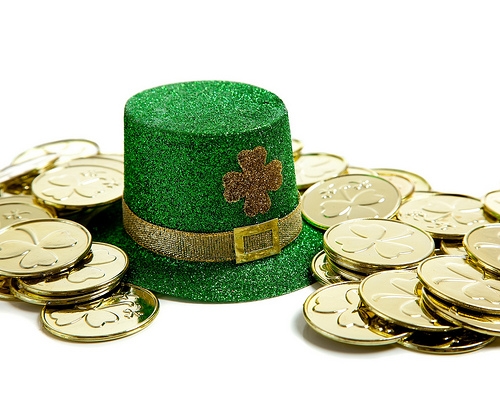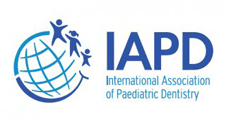March 22nd, 2023

Parents, and even older children, can become concerned about tooth development. Wondering when teeth should erupt, and being concerned when the teeth do not appear on schedule, is common. First, you need to remember that each individual is different. Guidelines are just guidelines, but Dr. Dinah Abioro and our team at Dental Land Pediatrics thought we would pass on this information to help you.
Primary teeth
Children normally have 20 primary or baby teeth. The first two to appear are usually the lower central incisors between six to ten months of age. These fall out between five and seven years of age.
- Two upper central incisors – eight to 12 months
- Two upper lateral incisors – nine to 13 months
- Two upper cuspids or canines – 16 to 22 months
- Two upper first molars – 13 to 19 months
- Two upper second molars – 25 to 33 months
- Two lower lateral incisors – ten to 16 months
- Two lower cuspids or canines – 17 to 23 months
- Two lower first molars – 14 to 18 months
- Two lower second molars – 13 to 31 months
As you can see, all the primary teeth normally have erupted before three years of age, but the timeline can vary by four to six months. Except for the lower central incisors and second molars, upper teeth tend to appear before lower teeth.
Permanent or adult teeth
Adults normally have 32 permanent teeth. However, four of these are wisdom teeth or third molars, which are often removed.
- Two upper central incisors – seven to eight years
- Two upper lateral incisors – eight to nine years
- Two upper cuspids or canines – 11 to 12 years
- Two upper first premolars or bicuspids – ten to 11 years
- Two upper second premolars or bicuspids – ten to 12 years
- Two upper first molars – six to seven years
- Two upper second molars – 12 to 13 years
- Two upper third molars or wisdom teeth – 17 to 21 years
- Two lower central incisors – six to seven years
- Two lower lateral incisors – seven to eight years
- Two lower cuspids or canines – nine to ten years
- Two lower first premolars or bicuspids – ten to 12 years
- Two lower second premolars or bicuspids – 11 to 12 years
- Two lower first molars – six to seven years
- Two lower second molars – 11 to 13 years
- Two lower third molars or wisdom teeth – 17 to 21 years
Please discuss any of your dental concerns during your visit with Dr. Dinah Abioro. If there is a problem with tooth development, the earlier we address it, the better the outcome. We specialize in pediatric dentistry and look forward to helping you and your child with all your dental needs. To learn more about tooth eruption, or to schedule an appointment with Dr. Dinah Abioro, please give us a call at our convenient Bowie office!
March 22nd, 2023

Childhood tooth decay is the most common chronic childhood disease, affecting nearly one in three children between the ages of two and five. In fact, the American Academy of Pediatric Dentistry reports that tooth decay can appear in children as young as six months old. As a parent, it is possible to spare your child from early childhood tooth decay, and potentially prevent a lifetime of oral health problems in one fell swoop.
Birth to age two
Good oral health begins before your child’s teeth ever erupt from the gums. During the first few months of life, you should be wiping your child’s gums with a damp cloth after eating. As soon as teeth appear, Dr. Dinah Abioro and our team at Dental Land Pediatrics recommend you start brushing them with a toddler toothbrush and water, and call our Bowie office to schedule your child’s first visit. Never allow your child to go to bed with a bottle, and try to limit beverages other than water only to meal times. Children who walk around or go to sleep with bottles or sippy cups full of juice or milk are exposed to more sugars and are more likely to develop tooth decay.
Ages two to six
All of your child’s primary teeth should erupt by age three. Brush your toddler’s teeth at least twice daily with a toddler toothpaste and toothbrush. As your child gets older and learns not to swallow toothpaste, you may begin to use oral care products specially designed for preschoolers and elementary-age children. Be sure to maintain regular dental appointments and cleanings as recommended by your child’s dentist, and encourage your son or daughter to begin drinking from a regular cup. This is also the time to teach your child the importance of healthy eating habits, which includes limiting sweets and sugary desserts to mealtime.
By first grade, your child will begin to lose primary teeth. This is the time to start talking with Dr. Dinah Abioro about dental sealants, which can prevent tooth decay from forming on the chewing surfaces of the teeth. Sealants are painless, easy to apply, and undetectable to other people.
Tips
Fluoride is an important ingredient for healthy teeth. Check to make sure the water your child drinks is enriched with fluoride. Also, brush your child’s teeth with fluoridated toothpaste, and talk to our office about whether fluoride treatments could be right for your family. For more information about preventing your child’s tooth decay, or to schedule an appointment with Dr. Dinah Abioro, please give us a call at our convenient Bowie office!
March 15th, 2023

“St. Patrick's Day is an enchanted time -- a day to begin transforming winter's dreams into summer's magic.” Adrienne Cook
Lucky green shamrocks, leprechauns, and pots of gold – it must be St. Patrick’s Day! If you’re not Irish, how do you go about celebrating St. Patrick’s Day? It’s easy: You just put on one of those tall leprechauns hats, dress in green from head to toe, and wear one of those carefree pins that say “Kiss Me, I’m Irish”. On St. Patrick’s Day, everyone is Irish, and that is the universal beauty of the holiday. Celtic pride does not discriminate.
Wondering what our team at Dental Land Pediatrics is doing to celebrate March 17th? Well, we’ve thought about doing everything from handing out lucky gold coins (you know, the fake ones that are made of chocolate) to shamrock stickers. Maybe we’ll even give away green toothbrushes and floss! You’ll never know unless you come in to see Dr. Dinah Abioro !
All kidding aside, St. Patrick’s Day is an important cultural and religious holiday. There are lavish parades and church services across Ireland on March 17th. Over time, however, the holiday has developed into a day to observe Irish culture in general. In places like England and the United States, where there is a large Irish Diaspora, the holiday has greater significance than other countries. From the streets of Boston to St. Patrick’s Cathedral in New York, it is a day of celebration, and many Americans of Irish descent will cook up a traditional meal of corned beef and cabbage.
So, to all of you with Irish ancestry, and to all of you who have decided to be Irish for the day, our office wishes you a Happy St. Patrick’s Day. Good luck looking for a pot of leprechaun gold, which is said to exist at the end of the rainbow. However, keep away from those sugary Lucky Charms; sweet cereals might taste good, but your kids’ teeth might not be feeling too lucky if they eat it for breakfast every day. Have a great St. Paddy’s Day!
March 15th, 2023

Two studies – one conducted in Washington State, and whose findings were published in the Journal of Pediatric Dentistry in 2004, and another conducted in Madrid, Spain, and whose findings were reported in 2012 in Science Daily, reinforce earlier findings that show a direct relationship between parental dental fear and that of their children.
The Washington study looked at dental fear among 421 children whose ages ranged from 0.8 to 12.8 years. The children were all patients at 21 different private pediatric dental practices in Western Washington State. The Spanish study looked at 183 children between the ages of seven and 12, and their parents in Madrid.
The Washington study used the Dental Sub-scale of the Child Fear Survey Schedule. The survey responses came from either parents, or other parties charged with taking care of the children. The people responsible for each child filled out the survey, which consisted of 15 questions to which answers were given based on the child’s level of fear. The scale used was one to five, with one meaning the child wasn’t afraid at all, and five indicating the child was terrified. The maximum possible points (based on the greatest fear) was 75.
Spanish researchers found that like past studies, there is a direct connection between parental dental fear levels and those of their kids. The most important new discovery from the study conducted in Madrid, was that the more anxiety and fear a father has of going to the dentist, the higher the fear levels among the other family members.
Parents, but especially fathers, who suffer from fear of going to the dentist and fear of dental procedures in general pass those fears on to every member of the family. While parents may not feel like they have control over those fears, the best way to help your child understand the importance of going to the dentist is by not expressing your fears in front of them – or around the rest of the family.
Dr. Dinah Abioro and our team understand that some patients are more fearful than others when it comes to visitingour Bowie office. We work hard to make our practice as comfortable for our patients, both children and adults.









